The Importance of Modeling Gratitude for Your Kids
16 March 2025
Gratitude—it's such a simple idea, but have you ever stopped to think about how powerful it can be? For kids, it’s not just about saying “thank you” when someone hands them a cookie. Gratitude is like planting a seed that, over time, grows into a solid foundation for happiness, empathy, and emotional well-being.
But here’s the thing: Gratitude isn’t something kids magically learn on their own. They learn it from us—their parents, their role models. The way we express gratitude in our daily lives has a direct impact on how they’ll approach it. So, if we want to raise mindful, thankful humans, it all starts with modeling gratitude ourselves. Sounds like a tall order, doesn’t it? Don’t worry—I’ve got you covered. Let’s break it down! 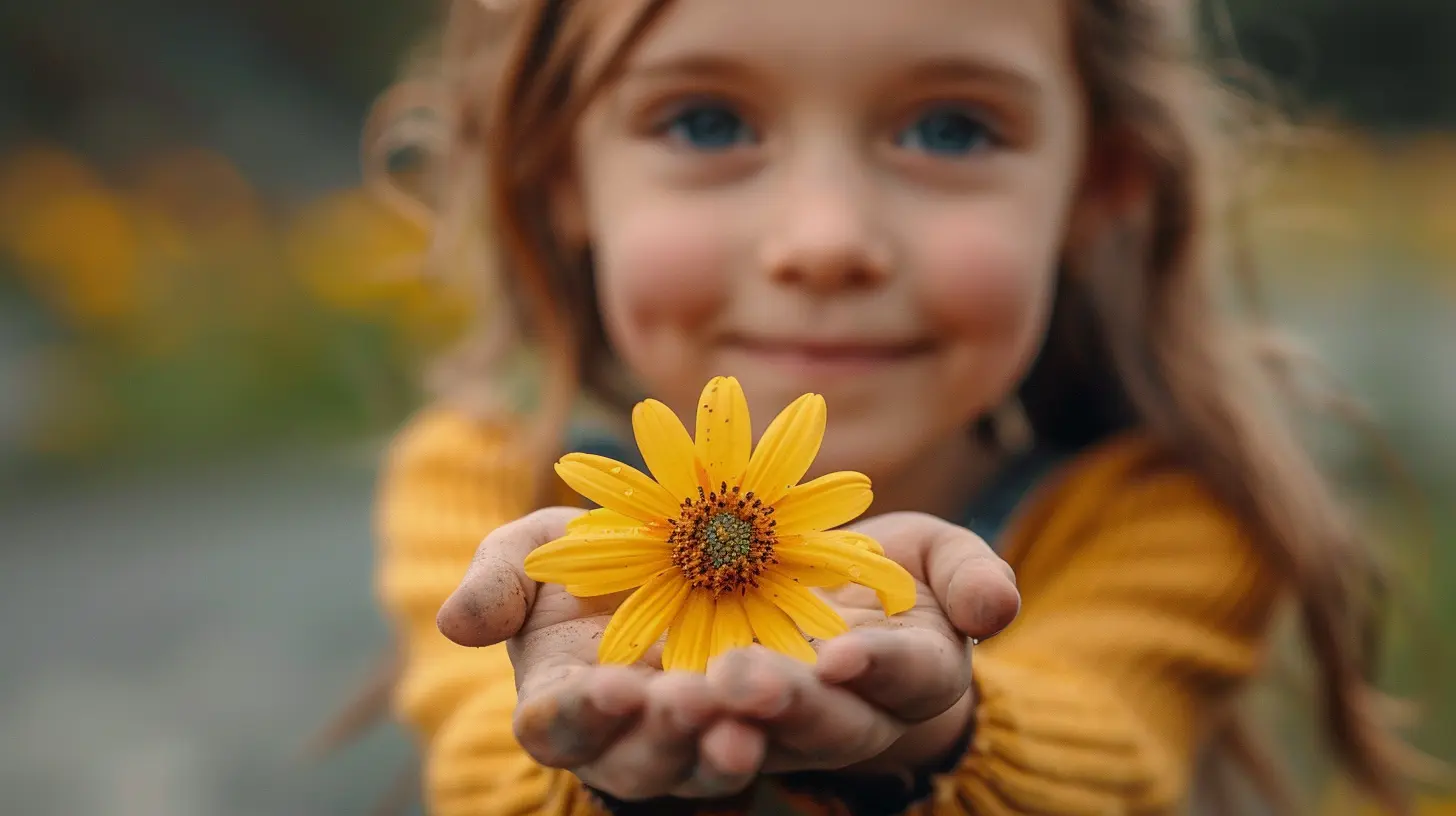
What Does Gratitude Really Mean?
Before diving into the "how," let's talk about the "what." Gratitude isn’t just polite manners or saying “thanks” out of obligation. It’s more than words—it’s a mindset. It’s recognizing and appreciating the good things in life, even when circumstances aren’t perfect.For kids, gratitude can look like being thankful for their family, friends, or even small things like a sunny day or their favorite storybook. Teaching them this perspective helps them focus on what they have instead of dwelling on what they don’t. That’s a life skill that will benefit them forever. 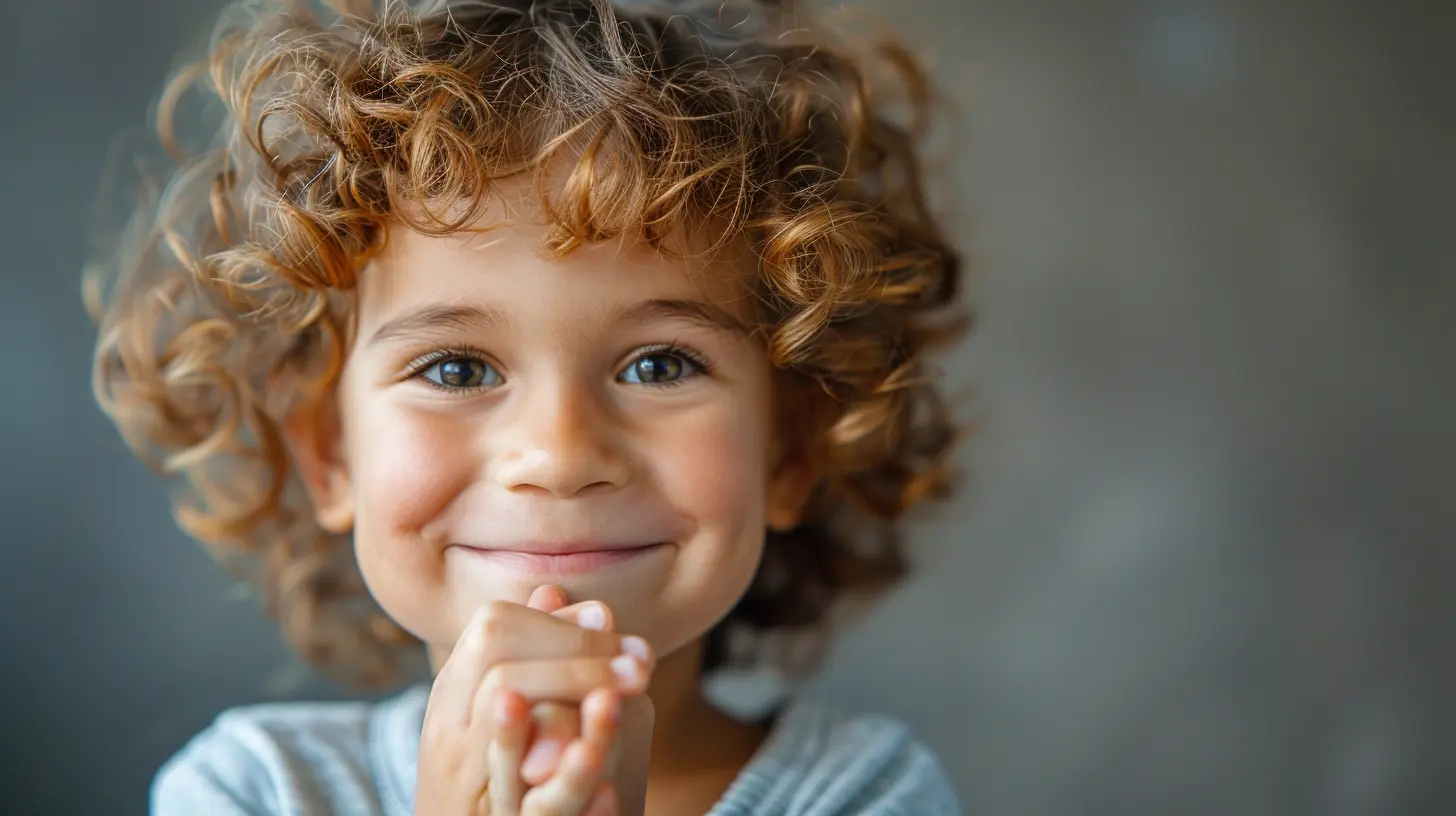
Why Modeling Gratitude Matters
Kids are like little sponges, aren’t they? They absorb everything we do, whether we’re conscious of it or not. If we consistently show gratitude in our actions and words, they’re far more likely to do the same. Let’s be real—how many times have you caught your kid mimicking you, whether it’s the good stuff or the not-so-good stuff?When they see you express genuine appreciation—whether it’s thanking the waiter for refilling your water or letting them know how much you love their macaroni artwork—it sends a powerful message. It teaches your kids that gratitude isn’t just a chore; it’s a way of life. 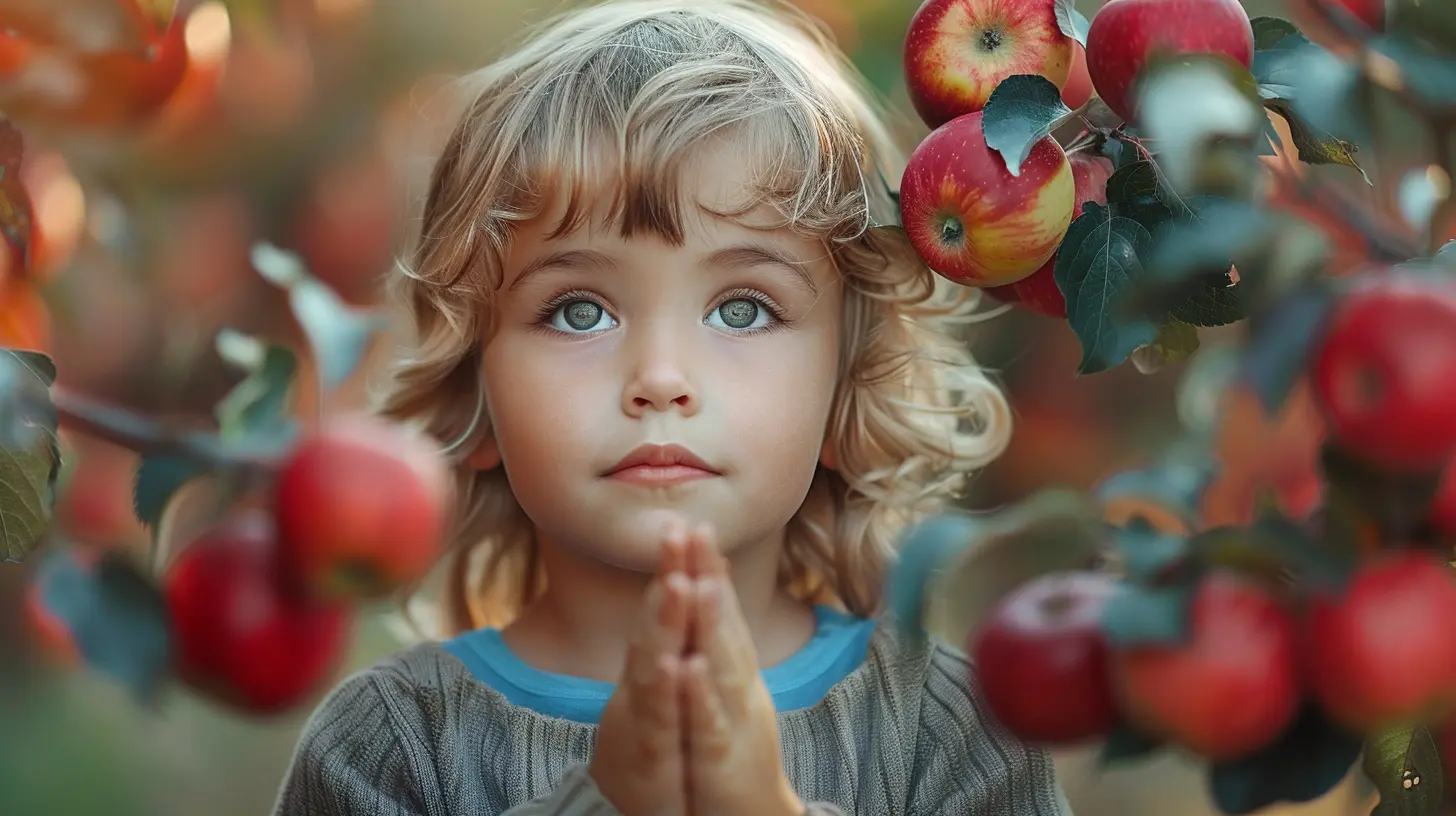
The Benefits of Gratitude for Kids
Gratitude isn’t just about being polite—it has real mental and emotional benefits. Check this out:1. Boosts Their Happiness
Grateful kids are happy kids. It’s science! A growing body of research shows that practicing gratitude can increase overall happiness and reduce stress. When children focus on the positives, it keeps their minds from spinning in negativity.2. Improves Relationships
Want your child to grow into someone who values deep, meaningful connections? Gratitude helps with that, too. It encourages them to appreciate the people in their lives and build stronger bonds.3. Nurtures Resilience
Life isn’t always smooth sailing, and kids aren’t exempt from challenges. Gratitude equips them with a positive perspective during tough times. It helps them reframe situations, making it easier to bounce back.4. Builds Empathy
Expressing gratitude often overlaps with understanding and acknowledging others' feelings. It’s like a gateway to empathy—something our world could definitely use more of!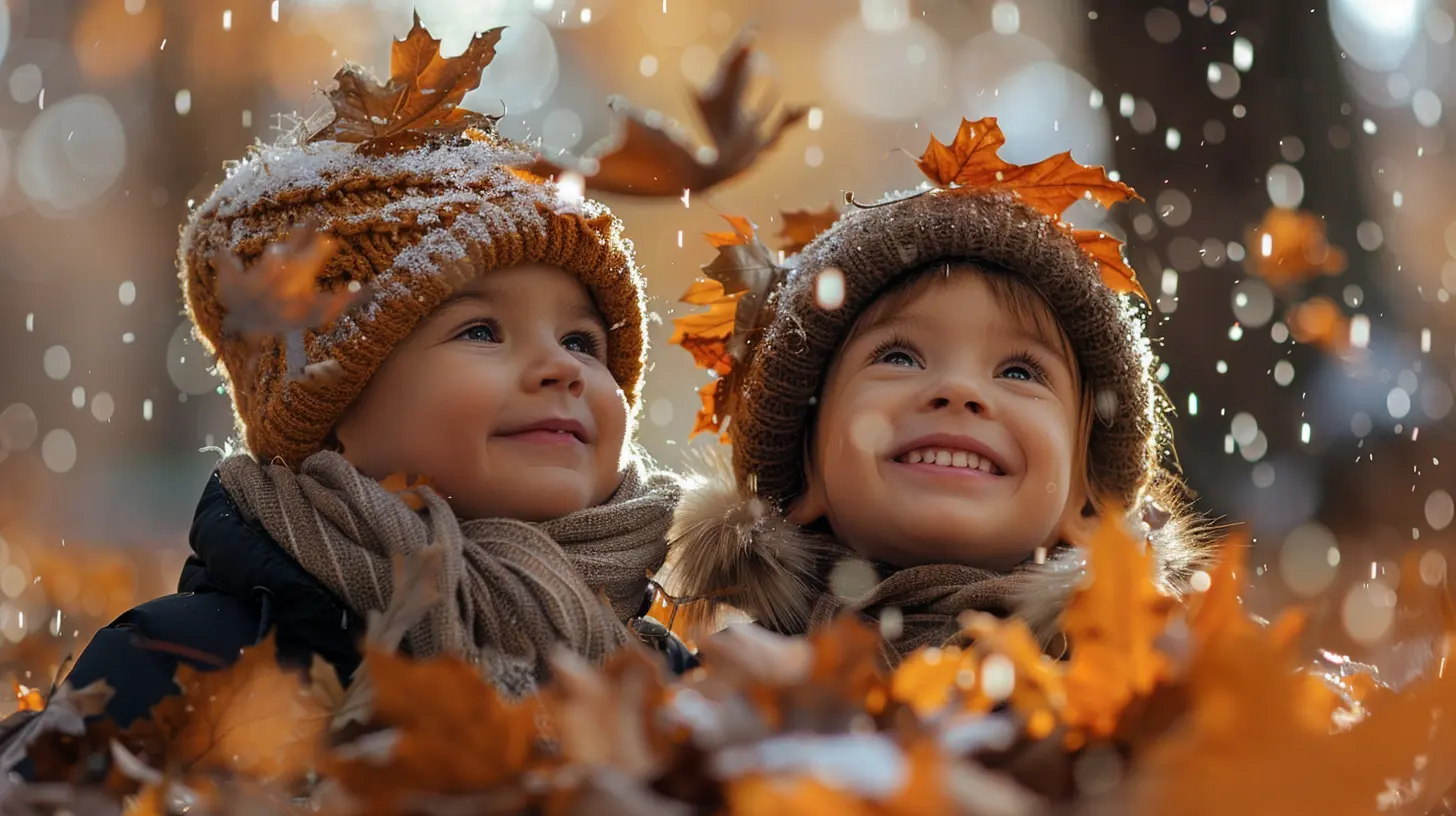
How to Model Gratitude for Your Kids
Okay, so we know it’s important. But how do we actually do it? Here are practical ways to weave gratitude into your parenting routine:1. Say It Out Loud
Don’t just feel grateful—show it. Did your partner cook dinner? Say, “Thanks for making such a yummy meal!” Did your child pack their backpack without being asked? Let them know you noticed. The more your kids hear you express gratitude, the more likely they’ll be to give it a try themselves.2. Make “Thank You” a Lifestyle
Gratitude isn’t just for big, life-changing moments. It’s in the little stuff, too. Thank the cashier at the grocery store. Thank your kid for helping set the table. Even small moments deserve acknowledgment.3. Practice Gratitude Together
Why not turn gratitude into a family activity? Try making it part of your nightly routine. At dinner or before bed, ask everyone to say one thing they’re grateful for. It’s an easy, low-pressure way to encourage reflection.4. Show It Through Actions
Words are great, but actions often speak louder. Write thank-you notes together, donate to a charity as a family, or bake cookies for a neighbor. These small gestures teach kids how gratitude can be expressed in meaningful ways.5. Be Grateful for the Challenges
This one’s tricky, but it’s important. Life’s not perfect, and showing kids how to find gratitude even in rough times is a game-changer. Whether it’s learning from a mistake or appreciating the effort behind a tough day, modeling resilience can inspire them to see the silver linings.Common Challenges and How to Overcome Them
Let’s be real for a second: Encouraging gratitude in kids isn’t always smooth sailing. Here are the common roadblocks and what you can do about them:1. The “Gimme” Attitude
Every parent has been there—your kid gets stuck in the “I want!” loop. It’s normal. Combat this by helping them recognize what they already have. Instead of just saying "no," talk about why it’s important to appreciate what they’ve got.2. They Don’t Seem to Care
Sometimes, gratitude doesn’t click immediately. That’s OK. Keep modeling it. Kids take time to absorb these lessons, but with consistency, they’ll get there.3. Forgetting Gratitude in Busy Moments
Life is hectic, and it’s easy to let gratitude slip through the cracks. When this happens, take a moment to reset. Pause and ask yourself, “What am I thankful for right now?” Modeling this reflection shows your kids that gratitude isn’t just for calm moments—it’s for all moments.Gratitude Is a Gift That Keeps on Giving
At the end of the day, gratitude isn’t a one-and-done lesson. It’s a practice, a habit, and a way of thinking that evolves over time. By modeling gratitude for your kids, you’re giving them one of the greatest gifts—an outlook that fosters happiness, emotional intelligence, and kindness.It doesn’t have to be perfect or Pinterest-worthy. Kids don’t need grand gestures or over-the-top affirmations. What they need is to see you live authentically, appreciating the big and small joys that life has to offer.
So go ahead—thank your barista, hug your kid when they least expect it, count your blessings out loud. Watch as those little sponges soak it all in and grow into grateful, compassionate people.
all images in this post were generated using AI tools
Category:
Teaching GratitudeAuthor:

Max Shaffer
Discussion
rate this article
12 comments
Ava McTier
Oh, absolutely! Because nothing says "thankful" like a parent who grumbles about the dishes while pretending to appreciate that one crayon drawing from last week. Can’t wait to watch my kids master the art of fake gratitude—such a valuable life skill! Who needs authenticity when you have a thankful facade? 🎨🙄
April 6, 2025 at 2:29 PM

Max Shaffer
I see your point! Balancing genuine appreciation with daily challenges can be tough. Modeling authentic gratitude, even amidst the chaos, helps kids understand its true value. Thank you for sharing your thoughts!
Astranor Mathews
Gratitude taught at home shapes kinder, more compassionate children for life.
April 5, 2025 at 3:16 AM

Max Shaffer
Absolutely! Modeling gratitude at home lays the foundation for empathy and kindness in children, fostering a positive impact on their relationships and overall well-being.
Bryce Vance
Modeling gratitude goes beyond teaching children to say "thank you"; it instills a deeper appreciation for life's blessings. By embodying gratitude in our daily actions, we nurture empathy and resilience in our kids, shaping their character profoundly.
April 4, 2025 at 3:21 PM

Max Shaffer
Thank you for your insightful comment! I completely agree—modeling gratitude truly enriches children's lives, fostering empathy and resilience while deepening their appreciation for the world around them.
Marie Price
Teaching gratitude shapes our children's perspectives—it's a powerful gift for their future.
April 4, 2025 at 3:10 AM

Max Shaffer
Absolutely! Teaching gratitude not only enriches our children's lives but also fosters empathy and resilience, shaping a positive future.
Tracie Reilly
This article compellingly emphasizes that modeling gratitude is essential in shaping children's emotional intelligence. By demonstrating appreciation in everyday interactions, parents not only cultivate a positive mindset in their kids but also foster deeper connections, teaching them the value of empathy and kindness.
April 3, 2025 at 5:07 AM

Max Shaffer
Thank you for your thoughtful comment! I'm glad you found the article emphasizes the vital role of modeling gratitude in nurturing emotional intelligence and empathy in children.
Kismet McTigue
Modeling gratitude? You mean I have to thank my kids for not spilling juice on my laptop again? Just kidding! Seriously, though, if we want our little tornadoes to appreciate the world, we’ve got to show them how—preferably without the juice stains on our shirts!
April 1, 2025 at 4:09 PM

Max Shaffer
Absolutely! Kids learn by example, so by expressing gratitude—even in the small, everyday moments—we teach them to appreciate the world around them. And maybe we can keep our shirts clean in the process!
Uri Lynch
Thank you for this insightful article! Modeling gratitude not only fosters kindness in children but also strengthens family bonds. It's a powerful lesson for life!
March 26, 2025 at 5:58 AM

Max Shaffer
Thank you for your thoughtful comment! I'm glad you found the article insightful and appreciate your emphasis on the impact of gratitude on kindness and family bonds.
Gabriel McDowney
This article beautifully highlights how modeling gratitude shapes children's perspectives and behaviors. By demonstrating appreciation in everyday life, we equip our kids with emotional tools that foster empathy and resilience. Cultivating gratitude today can lead to a more compassionate and connected tomorrow. Thank you for sharing!
March 24, 2025 at 4:51 PM

Max Shaffer
Thank you for your kind words! I'm glad you found the article meaningful. Cultivating gratitude truly is essential for nurturing empathy and resilience in our children.
Craig McGuire
Gratitude is like glitter: once you sprinkle it around, it sticks everywhere! Let’s turn our homes into gratitude glitter mines, showing our kids how to shine with appreciation. Who knew parenting could be so sparkly?
March 23, 2025 at 5:31 PM

Max Shaffer
Absolutely! Gratitude truly has a way of spreading joy and positivity, enriching our homes and our children's lives. Let's keep the sparkle alive!
Maura Adams
Modeling gratitude teaches kids resilience and appreciation, shaping them into empathetic and positive individuals for life.
March 21, 2025 at 6:03 PM

Max Shaffer
Thank you for highlighting the vital role gratitude plays in fostering resilience and empathy in children! It truly shapes their character for a brighter future.
Quorra McHugh
While modeling gratitude is essential, it’s crucial to remember that expressions of gratitude should be genuine and age-appropriate. Children are perceptive; they can sense insincerity. Encouraging authentic appreciation not only fosters emotional intelligence but also deepens parent-child connections, making gratitude a meaningful family value rather than just a practiced behavior.
March 20, 2025 at 3:57 PM

Max Shaffer
Absolutely! Genuine expressions of gratitude indeed strengthen emotional bonds and teach children the value of authenticity. Thank you for highlighting this vital aspect!
Vance Riggs
Thank you for this insightful article! Modeling gratitude is such a powerful practice for shaping our children's values. I appreciate the practical tips you provided for implementing this at home.
March 18, 2025 at 5:37 AM

Max Shaffer
Thank you for your kind words! I'm glad you found the article helpful and that the tips resonate with you. Modeling gratitude truly can make a lasting impact!
MORE POSTS
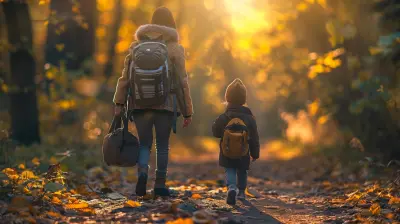
Teaching Patience to Preschoolers: Activities and Tips
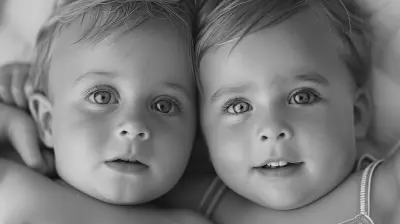
The Importance of Quality Time in Sibling Relationships
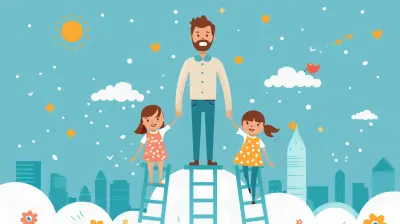
Raising Kids While Climbing the Career Ladder
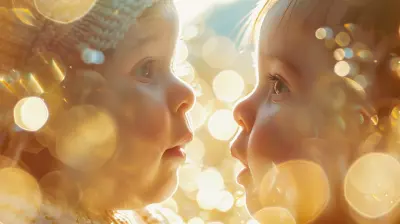
Preparing for a New Sibling While Staying Connected to Your First Child

Setting Boundaries: Prioritizing Family Time in a Busy World
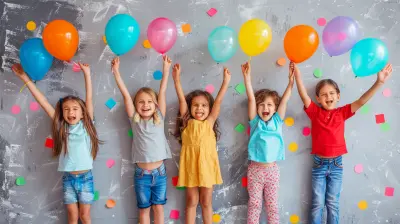
Celebrating Small Achievements: The Importance of Positive Reinforcement for Preschoolers

The Role of Baby Monitors in a Childproof Home
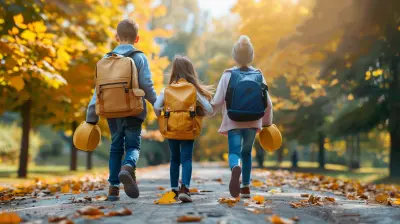
Setting Clear Goals for Your Child's First School Year